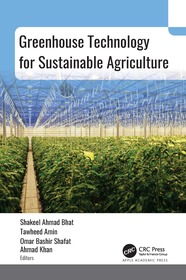
Legal and Economic Practice in the Roman World, Volume II
Perspectives on Standardization and Localism
Sorozatcím: Palgrave Studies in Ancient Economies;
-
12% KEDVEZMÉNY?
- A kedvezmény csak az 'Értesítés a kedvenc témákról' hírlevelünk címzettjeinek rendeléseire érvényes.
- Kiadói listaár EUR 181.89
-
75 438 Ft (71 846 Ft + 5% áfa)
Az ár azért becsült, mert a rendelés pillanatában nem lehet pontosan tudni, hogy a beérkezéskor milyen lesz a forint árfolyama az adott termék eredeti devizájához képest. Ha a forint romlana, kissé többet, ha javulna, kissé kevesebbet kell majd fizetnie.
- Kedvezmény(ek) 12% (cc. 9 053 Ft off)
- Kedvezményes ár 66 386 Ft (63 224 Ft + 5% áfa)
Iratkozzon fel most és részesüljön kedvezőbb árainkból!
Feliratkozom
75 438 Ft

Beszerezhetőség
Még nem jelent meg, de rendelhető. A megjelenéstől számított néhány héten belül megérkezik.
Why don't you give exact delivery time?
A beszerzés időigényét az eddigi tapasztalatokra alapozva adjuk meg. Azért becsült, mert a terméket külföldről hozzuk be, így a kiadó kiszolgálásának pillanatnyi gyorsaságától is függ. A megadottnál gyorsabb és lassabb szállítás is elképzelhető, de mindent megteszünk, hogy Ön a lehető leghamarabb jusson hozzá a termékhez.
A termék adatai:
- Kiadó Springer Nature Switzerland
- Megjelenés dátuma 2025. december 31.
- Kötetek száma 1 pieces, Book
- ISBN 9783031908026
- Kötéstípus Keménykötés
- Terjedelem198 oldal
- Méret 210x148 mm
- Nyelv angol
- Illusztrációk XIV, 198 p. 37 illus. Illustrations, black & white 700
Kategóriák
Hosszú leírás:
"
This edited volume examines the legal and economic world of the Romans through concepts, structures, and objects that reveal practices of standardization and localism. It explores the myriad ways in which the Roman Empire became an integrated political, social and economic system.
Split across two volumes, the collection addresses the dynamic interaction between Rome and its provinces in developing institutions crucial to societal and economic development. It challenges notions of uniformity, demonstrating how tensions between imperial standardization and local cultures could both drive innovative legal and economic practices and hinder empire-wide integration. The chapters explore broad questions from various disciplinary perspectives, including ancient economic history, law, papyrology, epigraphy and archaeology. Contributions cover diverse topics such as weights, measures, and coinage, legal practices, taxation, and cultural symbols. Each chapter investigates how, even as local communities adopted practices associated with Rome as a ruling power, local customs could, in turn, influence practices across the Empire.
By illuminating these reciprocal relationships, this book recontextualizes Roman standardization—not merely as a tool of imperial domination but as evidence of diverse socioeconomic practices and cross-cultural exchanges. It will be a valuable resource for scholars of ancient economic history, classical archaeology, and ancient law, as well as anyone interested in the economy and culture of Ancient Rome.
" Több
Tartalomjegyzék:
"
PART 3: Infrastructure: From Buildings and institutions to Socio-Economic Phenomena.- CHAPTER 9: Centuries in the Making? Augustan City Foundations, Legal Denominations, and the Integration of ‘Roman’ Standards Alexandru Martalogu.- CHAPTER 10: Legal Standardization and Localism in Roman Africa. The Sufetes Africae and the Romanization process* Filippo Incontro.- CHAPTER 11: Commercial Buildings in Lugdunum (Lyon, FR) and Vienna (Vienne, FR): between Standardized Models and Local Adaptations (First Century BCE – Third Century CE) Marine Lépée.- PART 4: Landscape, Space and Scale.- CHAPTER 12: Standardized Architecture and Economic Encounter in the Roman Empire Miko Flohr.- CHAPTER 13: The Standardization of Honorific Practices in Late Republican Italy. Some Notes on Serial Monuments and Elogia Francesco Cassini.- CHAPTER 14: Seeds of Convergence: Balancing Standardization and Regionalism in the Agrarian Economy of the Roman East Nicolas Solonakis.- AFTERWORD: Seven Types of Uniformity Nicholas Purcell.
" Több




